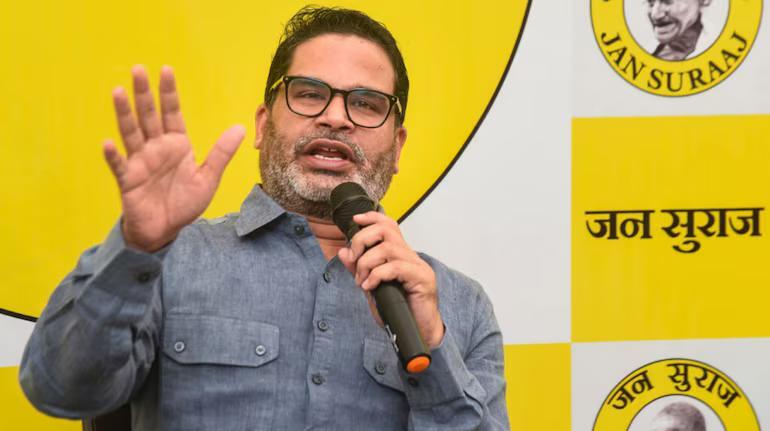
Caste is one factor, not the only factor: Kishor on Bihar politics
Bihar, a state in eastern India, has always been a hotbed of caste politics. The state’s complex social structure, with its numerous castes and sub-castes, has played a significant role in shaping its political landscape. However, Jan Suraaj Party chief Prashant Kishor, a renowned political strategist, recently stated that caste is just one factor among many that influence voting behavior in Bihar. In an interview, Kishor said, “Caste is one factor, but not the only factor.”
Kishor’s remark highlights the need to move beyond the simplistic understanding of caste politics that often dominates discussions about Bihar. While caste is undoubtedly an important factor, it is not the only factor that determines voting behavior in the state. Kishor’s observation is supported by the results of the recent Lok Sabha elections, where various political parties, including the Bharatiya Janata Party (BJP), managed to win seats despite not being the preferred choice of a particular caste group.
One of the key arguments made by Kishor is that people in Bihar do not necessarily vote for a candidate based solely on their caste. For instance, Prime Minister Narendra Modi belongs to the OBC (Other Backward Class) caste, but many people in Bihar, who do not belong to the same caste, still voted for him in the Lok Sabha elections. Similarly, Muslims in the state have historically voted for Lalu Yadav, a prominent leader of the Rashtriya Janata Dal (RJD), even though they cannot vote for the BJP due to its perceived anti-Muslim stance.
Kishor’s comments have sparked a debate about the role of caste in Bihar’s politics. While some argue that caste remains a potent factor in shaping voting behavior, others agree with Kishor that it is just one of many factors that influence political decisions. The debate highlights the complexity of Bihar’s political landscape, where multiple factors, including caste, community, religion, and economic conditions, intersect and overlap to shape voting behavior.
One of the key challenges facing political parties in Bihar is the need to move beyond caste-based politics. The state’s complex social structure, with its numerous castes and sub-castes, can create a sense of identity and belonging that transcends traditional party loyalties. However, this also means that political parties must work harder to build broad-based coalitions that appeal to a range of voters, rather than relying solely on caste-based support.
In this respect, Kishor’s Jan Suraaj Party has been seen as a breath of fresh air in Bihar’s political landscape. The party has been working to build a broad-based coalition that appeals to a range of voters, including Dalits, OBCs, and Muslims. By doing so, the party has been able to transcend traditional caste-based politics and build a more inclusive political platform.
Kishor’s comments have also sparked a debate about the role of ideology in Bihar’s politics. While some argue that ideology plays a minor role in shaping voting behavior, others argue that it is an important factor. The debate highlights the need for political parties to develop clear and compelling ideologies that resonate with voters, rather than simply relying on caste-based appeals.
In conclusion, Prashant Kishor’s remark that “caste is one factor, but not the only factor” highlights the need to move beyond simplistic understandings of caste politics in Bihar. While caste is undoubtedly an important factor, it is not the only factor that determines voting behavior in the state. By recognizing the complexity of Bihar’s political landscape, political parties can work to build more inclusive and ideologically-driven platforms that appeal to a range of voters.






